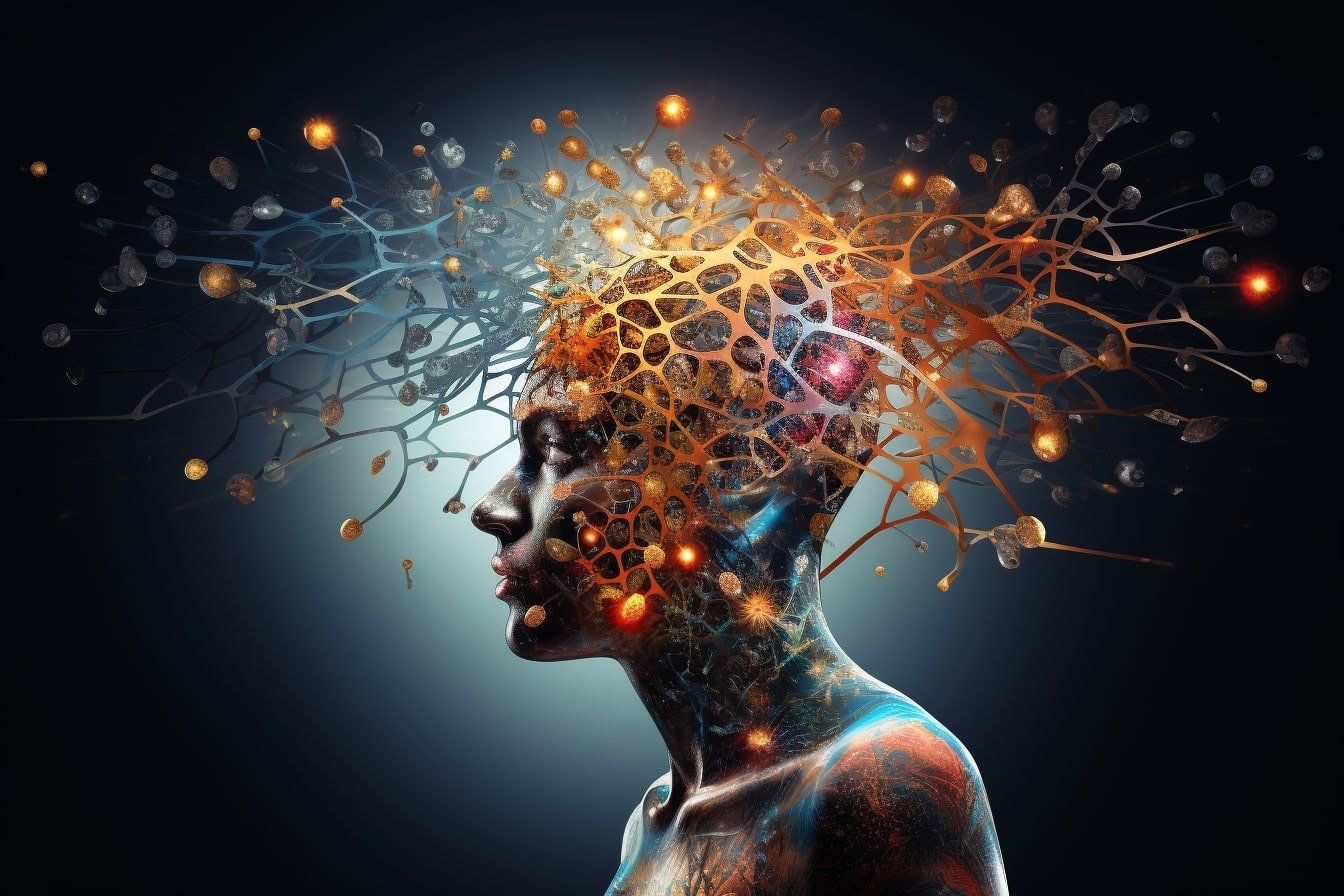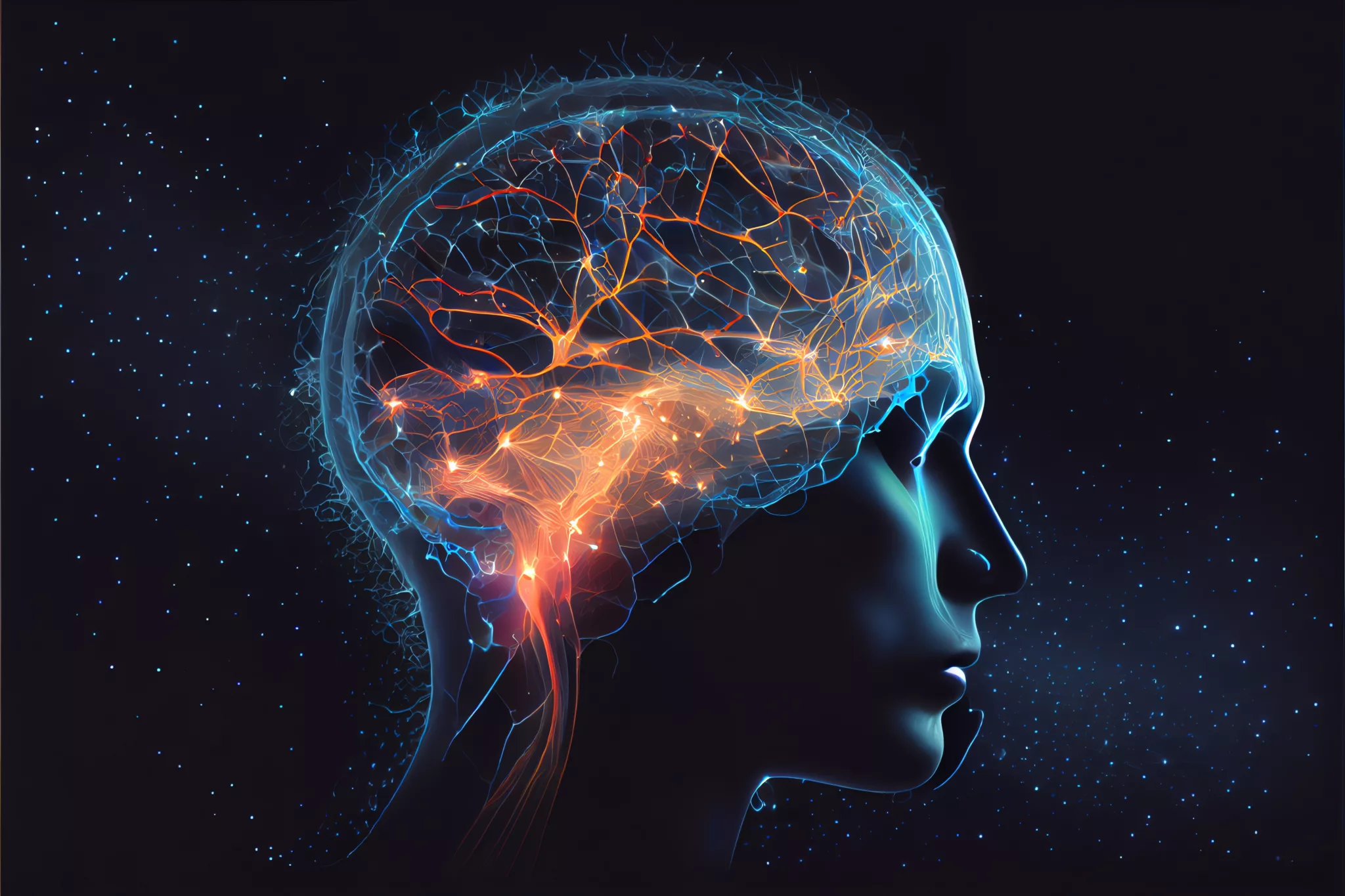Is our Brain the gateway to the 5th dimension?
Introduction
The human brain, often considered the most complex organ in the body, is a marvel of nature that continues to perplex scientists and researchers. Despite significant advancements in neuroscience, numerous mysteries shroud the inner workings of the brain. In this article, we embark on a journey into the intricacies of the human brain, exploring some of the most fascinating and enduring mysteries that continue to captivate the scientific community.
1. The Origin of Consciousness
The origin of consciousness stands as one of the most profound and elusive mysteries in the realm of philosophy and cognitive science. Understanding how subjective experience arises from the intricate neural processes of the brain remains a complex and multifaceted challenge. Various theories attempt to unravel the enigma of consciousness, ranging from biological and evolutionary perspectives to philosophical and metaphysical inquiries. Evolutionary theories posit that consciousness emerged as an adaptive trait, providing organisms with a heightened awareness of their surroundings, enhancing survival instincts, and enabling more sophisticated decision-making.
Neuroscientific perspectives delve into the intricate neural networks and processes that give rise to consciousness, exploring the role of brain regions, neural connectivity, and information processing. On the other hand, philosophical contemplations ponder the nature of consciousness itself, probing questions about the mind-body relationship, qualia, and the subjective nature of experience. The mystery persists, as science grapples with the challenge of pinpointing the precise moment and mechanisms through which consciousness emerges, and philosophy delves into the fundamental nature of subjective awareness. The origin of consciousness remains an intellectual frontier, compelling us to confront the depths of our own awareness and the profound intricacies of the human mind.
2. Neuroplasticity: The Brain's Adaptive Power
Neuroplasticity, a fundamental concept in neuroscience, challenges the traditional view that the structure and function of the brain are fixed and immutable. Instead, neuroplasticity reveals the brain's remarkable ability to reorganize itself in response to experience, learning, and environmental stimuli. This dynamic process involves the formation and strengthening of neural connections, the generation of new neurons, and the adaptation of existing neural pathways. Neuroplasticity underlies the brain's capacity to recover from injury, adapt to new challenges, and continually refine its circuitry throughout life. It plays a pivotal role in cognitive processes, memory formation, and skill acquisition, providing a biological basis for the malleability of human behavior and mental function.
The study of neuroplasticity has transformative implications for neurorehabilitation, education, and mental health, emphasizing the brain's resilience and potential for growth. As researchers delve deeper into the mechanisms and nuances of neuroplasticity, they uncover insights that redefine our understanding of the brain's plastic nature, encouraging a shift toward more dynamic and personalized approaches in neuroscience and neuroeducation.
3. Memory Formation and Recall
Memory formation and recall represent intricate processes that are fundamental to human cognition, involving the encoding, storage, and retrieval of information. Memory formation begins with the encoding of sensory input into the brain, where experiences are transformed into neural codes. This process is influenced by various factors such as attention, emotional significance, and repetition. Once encoded, memories are stored in different regions of the brain, including the hippocampus and cortical areas. Long-term memory consolidation involves the gradual transfer of memories from temporary storage to more permanent neural networks.
Retrieval, the process of accessing stored memories, relies on cues, associations, and context. Memory recall is not a perfect reproduction of past events; instead, it is a reconstructive process influenced by various cognitive factors, leading to the possibility of errors and distortions. Factors like stress, emotions, and the passage of time can impact the accuracy of recall. Advances in neuroscience have deepened our understanding of these processes, revealing the dynamic and plastic nature of memory formation and recall, with implications for fields ranging from psychology to education and neurology.
4. The Neural Basis of Emotions
The neural basis of emotions is an intricate and multifaceted aspect of neuroscience that seeks to unravel the complex interplay between the brain and the subjective experience of emotions. Emotions, ranging from joy and fear to sadness and anger, are fundamental to human existence, influencing cognition, behavior, and overall well-being. The amygdala, a cluster of nuclei deep within the brain's temporal lobe, is a key player in emotion processing, particularly in the generation of fear responses. The prefrontal cortex, responsible for executive functions and decision-making, regulates and modulates emotional responses.
Additionally, the limbic system, a network of structures including the hippocampus and hypothalamus, plays a crucial role in emotional memory and the physiological aspects of emotions. Neurotransmitters such as serotonin, dopamine, and norepinephrine are intricately involved in the regulation of mood and emotion, influencing communication between neurons. Neuroimaging techniques, such as functional magnetic resonance imaging (fMRI) and electroencephalography (EEG), have provided valuable insights into the neural signatures of various emotions, highlighting the dynamic and interconnected nature of the brain regions involved. Understanding the neural basis of emotions not only contributes to our knowledge of human psychology but also holds implications for mental health research, offering potential avenues for the development of targeted interventions and treatments for emotional disorders.
5. The Limits of Cognitive Abilities
The limits of cognitive abilities represent a complex and evolving area of study within the realms of psychology and neuroscience. Human cognition encompasses a vast array of processes, including perception, memory, attention, reasoning, and problem-solving. While the human brain is an astonishingly powerful organ, it is not without constraints. Working memory, the system responsible for temporarily holding and manipulating information, has well-documented limitations, affecting an individual's capacity to juggle multiple tasks or process extensive information simultaneously.
Attention, a crucial component of cognition, is also finite, and selective attention is required to filter relevant information from the overwhelming sensory input bombarding the brain. Additionally, cognitive load theory emphasizes the limited capacity of working memory, suggesting that learning and problem-solving are hindered when the cognitive load exceeds an individual's capacity.
Furthermore, cognitive decline with age is a natural aspect of human cognition, impacting various cognitive domains. While advances in neuroscience and cognitive psychology have elucidated many facets of cognitive functioning, there remains much to uncover regarding the intricate and sometimes restrictive nature of our cognitive abilities. The exploration of these limits not only deepens our understanding of the human mind but also informs efforts to enhance cognitive performance and address challenges associated with cognitive disorders and aging.
Conclusion
The mysteries of the human brain are a testament to the remarkable complexity of our most vital organ. As technology advances and our knowledge deepens, scientists inch closer to unraveling the enigmatic workings of the brain. However, the journey to fully comprehend the intricacies of consciousness, memory, emotions, and cognitive abilities is ongoing. The human brain, with its countless neurons and intricate connections, continues to be a source of fascination and exploration, offering a vast landscape of scientific discovery that holds the potential to transform our understanding of what it means to be human.






Comments
Post a Comment